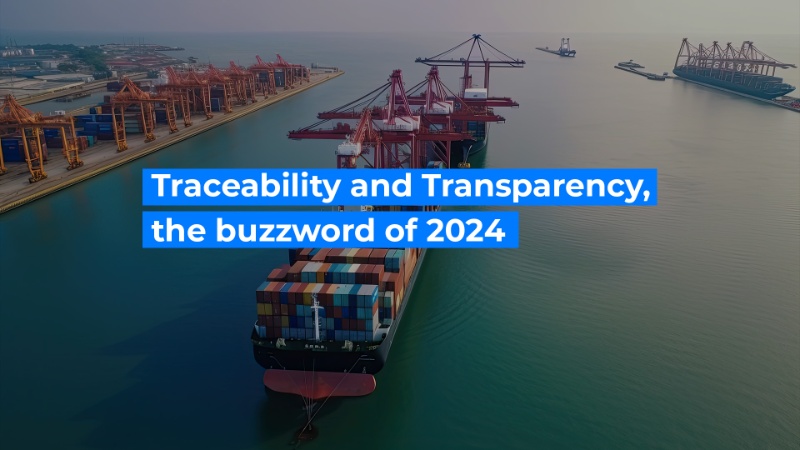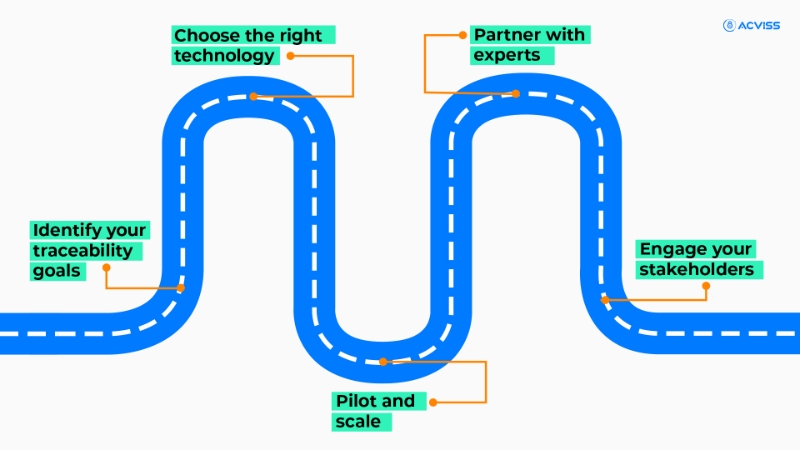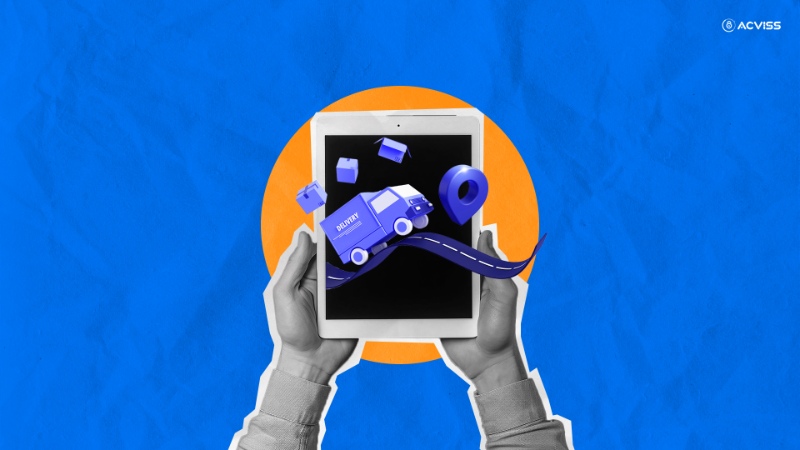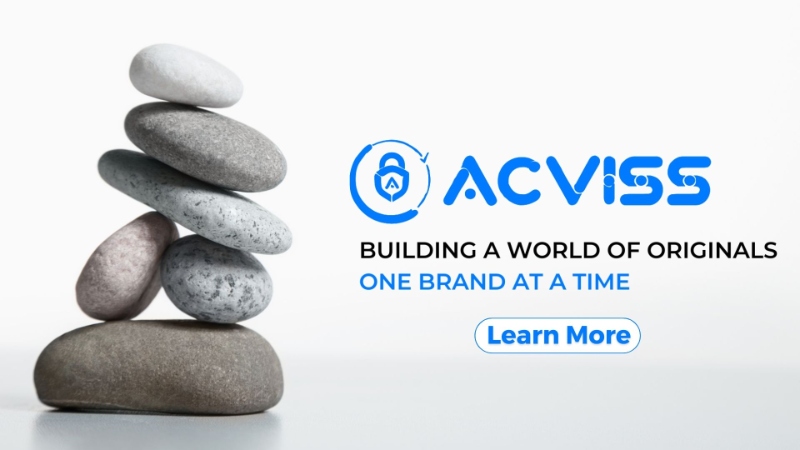How Traceability Solutions are Reshaping Industries in 2024
Consumers today demand more than just quality products; they want transparency, product authenticity and ethical sourcing. This shift in consumer priorities, coupled with the growing threat of counterfeiting and complex global supply chains, has propelled traceability solutions to the forefront of business innovation.
Contents
The Looming Shadow of A Global Crisis
Counterfeiting presents a significant threat to businesses and consumers alike. In 2023, it reached a staggering $4 trillion, impacting virtually every industry, from luxury goods and pharmaceuticals to electronics and automotive parts. Counterfeits not only erode brand reputation and revenue but also pose serious health and safety risks to consumers.
- Pharmaceuticals: Over 10-30% of drugs sold in developing countries are considered fake. Counterfeit drugs can be ineffective, harmful or even fatal, threatening patient safety and undermining legitimate pharmaceutical companies.
- Luxury goods: Consumers seeking high-quality, authentic products are often duped by sophisticated counterfeits, diluting brand value and impacting sales.
- Automobile: Over 20% of the accidents on the road are caused by malfunctioning fake components, drawing a grave threat to consumers and brands.
- Consumer Goods: FMCG products constitute 28% of the counterfeits sold in India. They harbour harmful ingredients, posing serious health risks and eroding brand trust.
The good news? Traceability solutions offer a powerful weapon against this rampant issue.
Traceability and Transparency, the buzzword of 2024

Traceability, in essence, creates a digital footprint for a product, allowing seamless tracking throughout its journey from source to end consumer. It involves recording and documenting information such as the origin, location, process undergone and handling of goods at each stage of the supply chain.
Improving Transparency is the primary purpose of traceability resulting in increased accountability and efficiency within the supply chain. It allows you to quickly identify vulnerabilities or problems; quality defects, contamination or compliance violations and take appropriate corrective actions.
European Union has initiated DPP for tracking the resources and sustainable practices. Traceability solutions ensure compliance with such regulations and certifications to meet sustainability and safety requirements.
This can be achieved through various technologies.
- Blockchain: The market for Blockchain in the supply chain is expected to reach $948 million in 2025. Why? It creates a secure, tamper-proof record of every step in the supply chain, ensuring authenticity and transparency. Every transaction and interaction within the supply chain is securely recorded, creating an unalterable trail of authenticity. From the sourcing of raw materials to the distribution of finished goods, stakeholders can trace each step, mitigating the risks by fraud detection, counterfeiting and unethical practices.
- Radio Frequency Identification (RFID): Uniquely identifies individual items using radio waves, enabling real-time tracking and data capture. Whether traversing through warehouses or navigating intricate logistical networks, products equipped with RFID tags transmit vital data, enabling swift and precise monitoring. This visibility not only optimizes inventory management but also enhances operational efficiency and customer satisfaction.
- Serialisation: Through the assignment of distinct serial numbers to each product, serialization facilitates targeted product verification and efficient recall processes. In the event of quality issues or safety concerns, stakeholders can swiftly pinpoint affected batches, thereby minimizing the impact on consumers and preserving the brand's reputation.
Types of Traceability
1. Product-Level Traceability
This approach involves tracking individual items, offering insights into their movement and condition. Industries dealing with high-value goods, such as pharmaceuticals, luxury items and specific quality-required foods, find this level of traceability necessary. They provide detailed information about each unit, including its origin, manufacturing date batch number and any relevant quality control data. This enables rapid response to quality issues or recalls, as specific units can be identified and targeted.
2. Batch-Level Traceability
For bulk commodities, apparel and electronics, batch-level traceability is crucial. It tracks groups of products, providing visibility into larger shipments and production processes. Companies can monitor the movement and status of multiple units within a batch, enabling efficient inventory management, logistics planning and quality assurance, helping to identify affected batches and minimize the impact on consumers and stakeholders.
3. Process-Level Traceability
Industries like food, chemicals and textiles benefit from process-level traceability, focusing on the steps involved in a product's journey, including sourcing, manufacturing and transportation. This provides visibility into the entire production process, from raw material sourcing to finished product distribution, particularly advantageous for ensuring ethical sourcing practices. Moreover, companies can monitor and optimize each stage of the production process, ensuring compliance with quality standards and regulatory requirements.
Advantages of Traceability Solution in Supply Chain
The benefits of implementing traceability solutions go far beyond combating counterfeiting:
- Supply Chain Visibility: Traceability provides real-time insights into product location, storage conditions and transportation details, optimizing logistics and improving efficiency.
- Quality Control: By pinpointing potential issues early in the supply chain, businesses can reduce product recalls and ensure consistent quality.
- Sustainability and Ethical Sourcing: The technological era is all about sustainability and green movement, traceability empowers consumers to make informed choices about products by tracking their ethical and environmental impact throughout the supply chain.
- Brand Trust and Customer Loyalty: Transparency fosters trust and strengthens brand loyalty by showcasing a commitment to authenticity and responsible practices.
- Inventory Management Optimization: Traceability solutions facilitate companies to maintain accurate inventory records and optimize stock levels. It improves cash flow, reduces waste and enhances overall operational efficiency.
- Data-driven Decision Making: Analysing data through traceability systems allows you to identify trends, patterns, and opportunities for improvement in supply chain operations.
- Anti-Counterfeiting Measures: Unique identifiers for each product and tracking its journey through the supply chain help to authenticate the raw materials, process and quality of goods and detect counterfeit products.
Traceability in Action
Ever since the Covid pandemic and the expansion of markets beyond borders, brands have taken serious care in catering safe and effective trade experiences to their customers. Several leading brands are already harnessing the power of traceability to revolutionize their businesses and supply chain operations, empowering the industries as a whole.
- Walmart: The retail giant implemented blockchain-based traceability systems to track the journey of their food products from source to shelf, allowing customers to access information about where ingredients were sourced, as well as details about processing and transportation.
- Ford Motor Company: The automotive company uses blockchain technology to trace the quality and authenticity of the cobalt supplies used in the batteries for electric cars.
- Coffee Board of India: Coffee farmers across India are protected with a blockchain-powered traceability system by Acviss. Origin secures the coffee products in the supply chain and builds trust in the agricultural supply chain.
- IBM Food Trust: This blockchain platform allows food companies to track foodborne illnesses faster and more effectively, ensuring consumer safety and minimizing business disruptions.
- De Beers Group: Utilizes blockchain technology to verify the origin and authenticity of diamonds, ensuring ethical sourcing and consumer confidence.
- Pfizer: Employs serialization with blockchain to track medications throughout the supply chain, combating counterfeit drugs and protecting patient safety.
Roadmap for Implementing Traceability in Businesses

Integrating traceability into your business operations might seem daunting, but the potential rewards far outweigh the challenges. It always depends on what industry your business belongs to but no matter the nature, a traceability solution is a necessity.
Here's a roadmap to help you get started:
- Identify your traceability goals: What are your primary concerns? Combating counterfeits, improving supply chain visibility or enhancing brand transparency?
- Choose the right technology: Analyze your needs and budget to identify the most suitable technology. Solutions like Origin by Acviss can be tailored to fit your brand requirements making it a great place to start your supply chain transparency campaign.
- Pilot and scale: Start with a pilot program to test the technology and refine your approach before full-scale implementation.
- Partner with experts: Collaborate with technology providers and brand protection experts to navigate the intricacies of implementing traceability solutions.
- Engage your stakeholders: Communicate the benefits of traceability to your employees, suppliers and customers to build trust and collaboration.
A New Avenue for Global Trade
Traceability solutions are no longer a luxury in 2024, they are a necessity. Transparency and authenticity open doors to a whole new world of commerce globally. It will also help build trust with consumers, strengthen your brand reputation and protect themselves from the threats of counterfeiting. The time to act is now. Are you ready to join the traceability revolution?
Want to know more about supply chain, transparency and brand protection? Head over to Acviss to learn more or get in touch with us to understand how we can get your supply chain secured.

